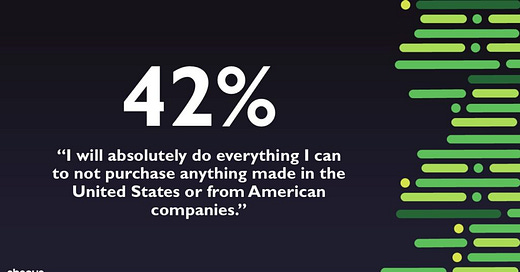Embracing the Canadian Election Moment: How Canada’s Politics Pivoted Overnight
Some thoughts after my interview with Australian journalist Latika Bourke.
If you had asked me a few months ago whether the Liberal Party under Justin Trudeau had any shot at winning another federal election, my honest answer would have been a firm no. The polls were consistently showing Conservative leader Pierre Poilievre cruising to a double-digit lead, with much of the public fed up after nearly a decade of Liberal rule. Trudeau’s personal approval had plummeted. The sense on the ground was that people wanted change.
Then everything changed—almost in a blink. In the span of just a few weeks, we saw the sudden resignation of Chrystia Freeland as finance minister and deputy prime minister, swiftly followed by Justin Trudeau’s own announcement that he would step down as leader. Almost at the same time, Donald Trump was sworn back into office in the United States, issuing a string of openly aggressive statements toward Canada that many Canadians interpreted as a direct threat to our sovereignty, to our economic well-being, and even to our sense of national pride.
What happened next was staggering. Mark Carney—former Governor of both the Bank of Canada and the Bank of England—emerged almost unchallenged as Liberal leader and, in so doing, set off a dramatic recalibration in Canadian public opinion. Voters, who only weeks ago were tuned into concerns about rent and groceries, were suddenly forced to consider a different question: “Who can protect Canada—and protect me—from Donald Trump’s threats?” The existential dread sparked by Trump’s talk of annexation, tariffs, and even 51st-state rhetoric began to overshadow every other issue. In a political environment where we’re all trying to figure out if we’ll even remain a sovereign nation, a lot of that old frustration with the incumbent party has shifted.
I’ve described this transformation as going from a scarcity mindset to a precarity mindset. Scarcity is when you’re worried about daily costs, about your household finances, about that monthly rent. Precarity is when you’re worried that the very underpinnings of your country, your economy, and your security might be threatened. It’s “Will we still have enough money to live on?” plus “Will we still be a country that can stand on its own two feet?”




